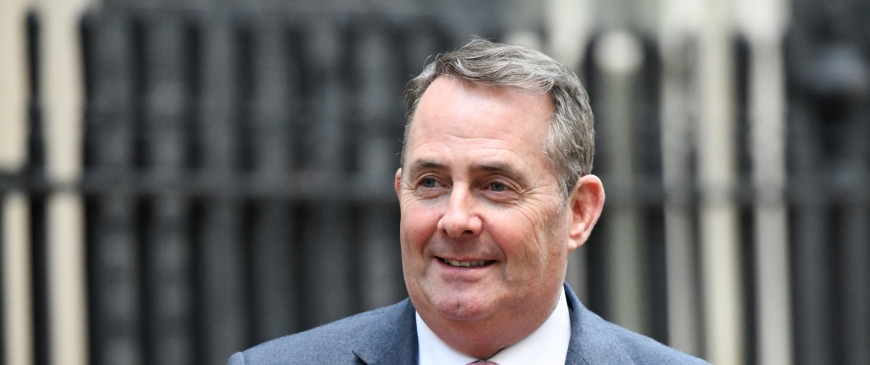
Forget new trade deals – Britain’s struggling to keep the ones it has
"Global Britain” advocates often fail to acknowledge the long list of countries the UK already has free trade agreements (FTAs) with, by virtue of its EU membership. The EU’s trade partners include Turkey, Israel, Morocco, South Korea, South Africa, Chile, Mexico and, more recently, Canada and Japan.
And these agreements matter to British business: up to 15% of UK exports are to countries the EU already has a trade agreement with. It is of little surprise that the Brexit priority for most British businesses – after securing a deep relationship with the UK’s most important trading partner, the EU – is not future free trade agreements with the US, New Zealand and others, but replacing those that already exist.
Yet clarity from the government has been hard to come by. The Financial Times reported that frustrations boiled over in a meeting this week in which government trade officials told a group of business executives that even if the UK leaves the EU with a deal, they cannot guarantee that existing EU trade agreements will continue to apply to the UK during the subsequent two-year transition period.
This should not have come as a surprise to anyone. Replacing all of the existing agreements by 29 March was never going to be possible, and the withdrawal agreement only requires the EU to ask its FTA partners to continue to extend the benefits of the deal to the UK for the duration of the transition – it can’t guarantee the FTA partners will say yes.
Replacing the trade agreements that the UK enjoys through its EU membership was always going to be tricky. All need to be renegotiated, if only a little, and some – for example the EU’s customs union with Turkey – are entirely dependent on the UK’s future relationship with the EU.
The UK appears to have done a good job on the replications it has concluded. One of the big fears about the replaced agreements is that British exports would no longer qualify for the tariff-free treatment because not enough of the value-added is created within the UK – the “rules of origin” question. However, the recently published text of the future UK-Chile replacement deal reveals that British negotiators managed to convince the Chileans to continue allowing British exports to account for EU inputs as being British for the purpose of meeting local content requirements.
Whether they will be able to convince bigger trading partners, such as South Korea, to do the same remains to be seen, but it is a notable achievement nonetheless.
The real problem has been the UK’s lack of transparency, and lack of honesty about the difficulties inherent to the process from the beginning. In October 2017, Liam Fox, the trade secretary, said, “I hear people saying, ‘Oh, we won’t have any [free trade agreements] before we leave’. Well, believe me we’ll have up to 40 ready for one second after midnight in March 2019.” While he has since gone back on this, and indeed official government policy has changed, such statements linger, and run the risk of lulling companies into a false sense of security.
When the government has been honest with business groups and stakeholders, the information has often been delivered late in the day and contained to small groups, with participants sworn to secrecy or made to sign non-disclosure agreements.
Not being open about the difficulties of replacing existing trade agreements has consequences. As anyone who talks to small businesses in the UK will tell you, even those with experience of exporting remain entirely unprepared and largely unaware that existing free trade agreements might no longer apply.
If the UK is going to make a success of any post-Brexit trade policy this secrecy will need to end. These discussions cannot happen behind closed doors, and the trade-offs and consequences of government decisions should be made public as early as possible. If not, anger will continue to grow, people and businesses will be caught by surprise, and even the successes will be tainted by resentment.
Sam Lowe is a senior research fellow at the Centre for European Reform.
